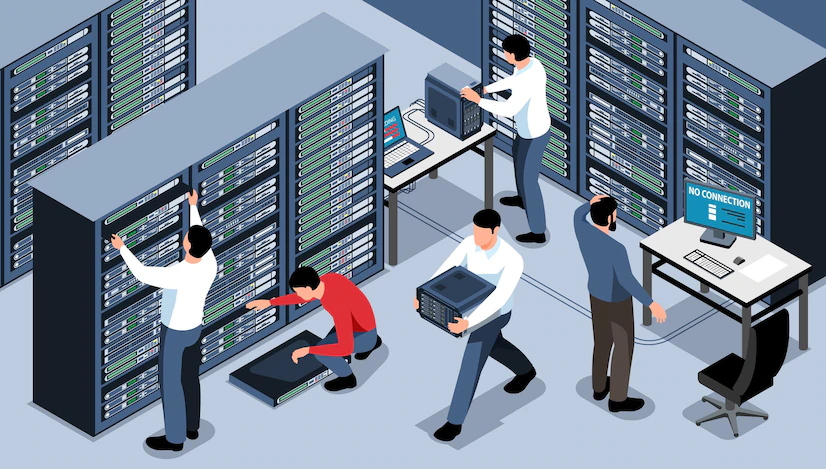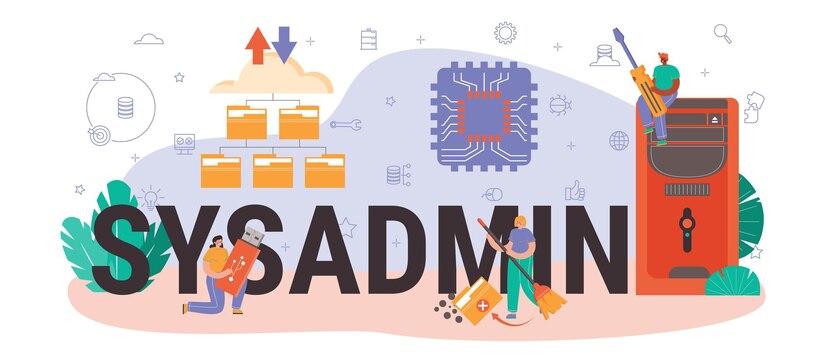As more and more businesses move to a DevOps model, sysadmins are finding themselves in a difficult position.
They need to learn new technologies and workflows to stay relevant in the age of DevOps. Sysadmins, the time of automation is upon us.
With the rise of DevOps, more and more companies are looking to automate the systems and processes that keep their businesses running. As a sysadmin, you may wonder what this means for your role.
Don’t worry; you’re not being replaced by a machine just yet. But it is essential to understand how DevOps works and why it’s becoming so popular. For example, this JFrog study focuses on how DevOps processes can help the banking sector with software deployment and quality.
What Is DevOps And How Does It Differ From Traditional Sysadmin Workflows
Traditional sysadmin workflows tend to have separate stages for development, testing, deployment, and maintenance, with little or no overlap between teams.
DevOps is a combination of software development and IT operations to improve communication and collaboration between these teams.
It’s all about automating processes and integrating them into the overall workflow rather than having separate siloed departments. This leads to quicker and more efficient deployments, faster problem-solving, and improved reliability for the end user.

The Benefits Of Using A DevOps Approach For Sysadmins
As a sysadmin working in a DevOps environment, you’ll have more opportunities for collaboration with other teams and a greater understanding of the overall project. Your job will become less about just keeping the systems running and more about actively improving and optimizing them for better performance.
If your current job solely involves maintenance and problem-solving, DevOps can also open up new career paths for you. You may have the opportunity to delve deeper into software development or even take on a managerial role in a DevOps team.

How To Get Started With DevOps If You’re A Sysadmin
If your company is already using DevOps or moving in that direction, talk to your team about training opportunities and see what resources are available. You can also attend DevOps conferences or find online courses to learn about the principles and tools used in DevOps.
Another great way to start learning is by taking on small automation tasks in your day-to-day work. Look for repetitive processes that could be streamlined or automated, and try implementing a solution using a tool such as Ansible or Chef. This will improve your skills and show the value you can bring to a DevOps team.

Tips For Making The Transition To DevOps
Don’t feel overwhelmed by all the new technologies and methodologies involved in DevOps – it’s a continuous learning process, even for those who have been working with it for years. Take it one step at a time, starting small and gradually expanding your skill set as you go.
Remember to keep an open mind and embrace collaboration with other teams. DevOps is all about breaking down silos and working together towards a common goal, so prioritize communication and problem-solving as a team rather than individual work.

How Can Sysadmins Stay Relevant In The Age Of Automation?
As a sysadmin, you may wonder how you can stay relevant in an age where more and more companies are automating their systems administration tasks. The good news is that there are still plenty of ways for sysadmins to add value in the age of automation.

Below are just a few examples:
1) Helping developers choose the right tools: With so many different automation tools on the market, it can be difficult for developers to choose the right ones for their needs. As a sysadmin, you can help them choose tools that will work well with your company’s existing infrastructure and help them get started with using those tools effectively.
2) Providing input on infrastructure changes: As your company automates its systems administration tasks, there will inevitably be changes to your company’s infrastructure. As a sysadmin, you will deeply understand your company’s existing infrastructure and how those changes will impact it. This understanding will be valuable when it comes time to decide which changes should be implemented and how they should be implemented.
3) Monitoring KPIs: Once your company’s systems administration tasks have been automated, it will be essential to monitor key performance indicators (KPIs) to ensure that the automation is working as expected and that there are no adverse side effects. As a sysadmin, you will have experience monitoring KPIs, and you will be able to use that experience to help identify any potential problems with the automation so that they can be fixed quickly.
4) Helping with troubleshooting: Even with automation in place, there will still be times when things go wrong. When those times arise, your company will need someone who can troubleshoot the issue quickly so that operations can resume usually. As a sysadmin, you will have experience troubleshooting issues with your company’s infrastructure, and you will be able to use that experience to help resolve problems quickly when they occur.
Common Challenges Faced By Sysadmins During The Transition To DevOps
One common challenge sysadmins face during the transition to DevOps is a fear of being replaced by automation or new team members with specific DevOps skills.
It’s important to remember that even with automation in place, there will always be a need for experienced sysadmins who can monitor and troubleshoot systems. In addition, embracing collaboration and constantly expanding your skill set will ensure that you are a valuable DevOps team member.
Another challenge sysadmins may face during the transition to DevOps is adjusting to a different workflow and mindset. DevOps focuses on continuous improvement and collaboration, which can be a significant shift from traditional sysadmin workflows. It’s essential to keep an open mind and embrace the change, as DevOps can bring numerous benefits to your organization.
Additional:









